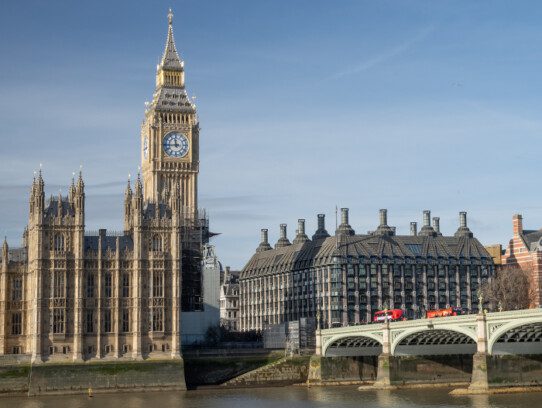Weekly round up
UK markets fell this week as softer commodity prices dragged down the UK’s benchmark FTSE 100 Index by 1% to trade at 7,150 points at the time of writing.
Boris Johnson finally bowed to pressure and announced his resignation on Thursday after several cabinet members quit, putting an end to some political chaos. However, the UK Prime Minister defied pressure to step down immediately saying he would remain until his successor is chosen. Conservative MPs hoping to succeed Boris Johnson as Tory leader were preparing their campaigns with former Chancellor Rishi Sunak, Foreign Secretary Liz Truss and Defence Secretary Ben Wallace among the likely contenders.
Elsewhere, the Bank of England warned the UK’s economic outlook has deteriorated markedly due to the impact of the war in Ukraine and told banks to ramp up capital buffers to deal with shocks. Nevertheless, optimism rose as the new government could quickly cut taxes and increase spending to boost growth and improve relations with the European Union. The British pound has been falling consistently since May of 2021 against the US dollar as investors continue to doubt the Bank of England will be able to control soaring inflation without damaging the economy.
In the commodity markets, Brent crude futures traded around $104 per barrel on Friday and are set to finish the week lower as concerns about a global recession mount. The international benchmark is down more than 6% so far this week, tracking a broader decline in the commodity markets. Gold traded around $1,740 an ounce on Friday, heading for its fourth straight weekly decline, as heightened recession fears and an increasingly restrictive US monetary policy drove investors out of bullion and into the dollar.
In Asia, Chinese equities fell on Friday, reversing earlier gains, amid concerns that domestic Covid outbreaks would derail China’s economic recovery, despite measures to boost growth. Authorities vowed to ramp-up infrastructure funding and rolled out measures to boost new energy vehicle sales. Analysts warned the country remains susceptible to lockdowns as it adheres to its strict zero-Covid policy that is likely to slow the pace of infrastructure projects and dampen consumption. Japan’s former prime minister Shinzo Abe was assassinated on Friday during a campaign speech in one of the most significant acts of political violence to rock the country in the post-war era.
US equity futures fell on Friday after the major averages rallied in the regular session, as investors brace for the highly anticipated jobs report. The American economy likely added 269,000 payrolls in June of 2022, which would be the lowest reading since April of 2021. The unemployment rate is seen unchanged at 3.6% remaining the lowest since February of 2020 and wage growth likely steadied at 0.3%.
All three major US stock indices closed higher on Thursday with the S&P 500 and the Nasdaq Composite posting their fourth straight day of gains, rallying 1.5% and 2.3% respectively. The Dow Jones Industrial Average also gained 1.1% for its third winning session out of four. In the latest Federal Reserve commentary two of the most hawkish policy makers, Christopher Waller and James Bullard, backed raising interest rates by a further 0.75% this month to curb soaring inflation. This prompted a decline in commodity prices, which in turn improved investor sentiment for growth stocks.
The information provided in this communication is not advice or a personal recommendation, and you should not make any investment decisions on the basis of it. If you are unsure of whether an investment is right for you, please seek advice. If you choose to invest, your capital may be at risk and the value of an investment may fall as well as rise in value, so you could get back less than you originally invested.
